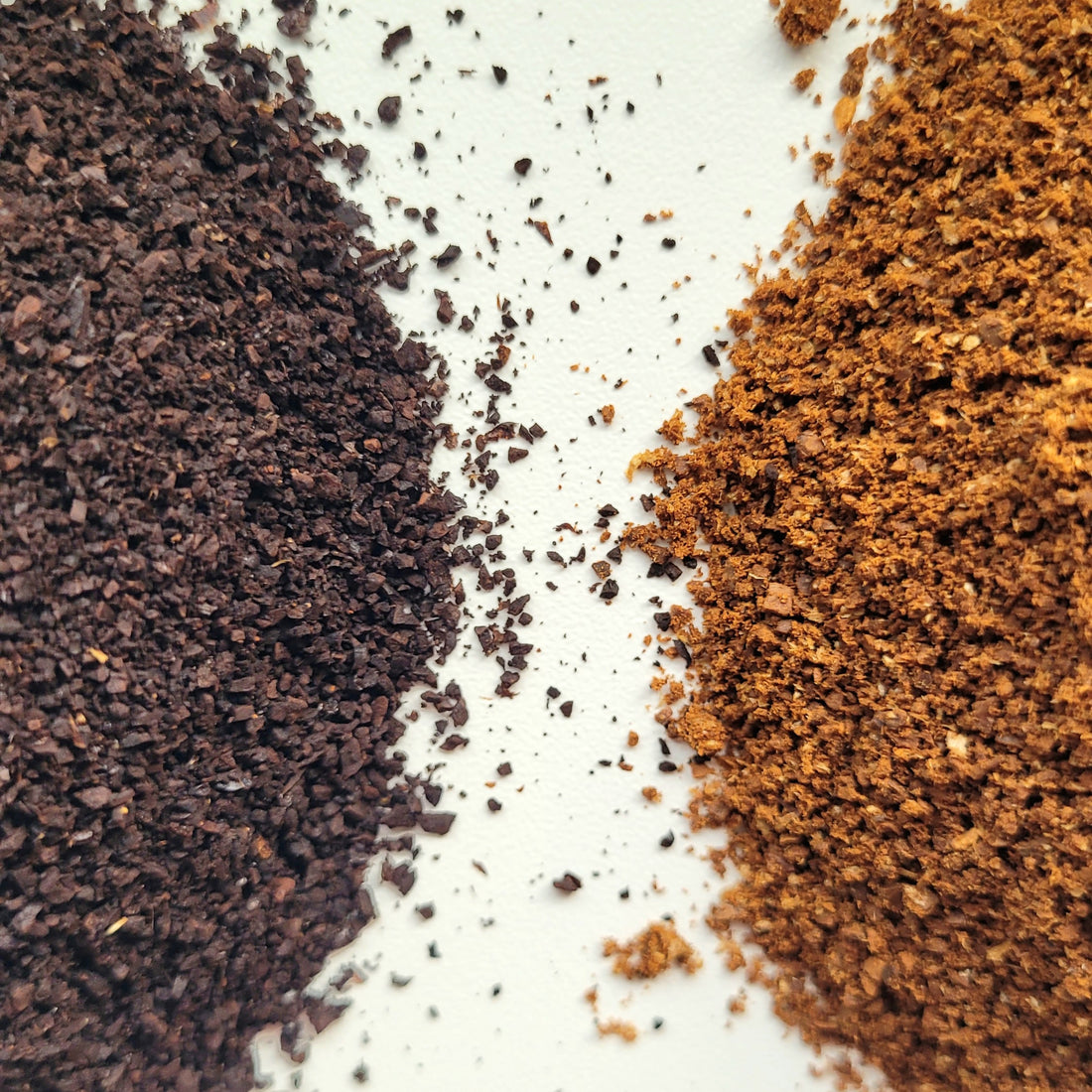Which Has More Caffeine: Light Roast or Dark Roast? It Depends!
If you've ever wondered whether light roast or dark roast coffee has more caffeine, the answer might surprise you: it’s not as straightforward as you might think.
Caffeine Content: The Roasting Process Doesn’t Make a Big Difference
Caffeine is a stable compound that remains largely unaffected by the roasting process. This means that, **bean for bean**, light roast and dark roast coffees contain virtually the same amount of caffeine. The roasting temperature doesn’t cause significant changes to caffeine levels, so the myth that dark roasts have less caffeine because they’re roasted longer is simply that—a myth.
What Really Affects Caffeine in Your Cup?
While the caffeine content of individual beans stays consistent, the amount of caffeine that ends up in your cup depends on how you measure your coffee.
Measuring by Weight:
Light roast coffee is denser than dark roast coffee. During roasting, beans lose moisture and expand, so a dark roast will weigh less than a light roast of the same volume. Therefore, if you're measuring your coffee by weight (say, using a scale), a scoop of dark roast coffee will have more beans than the same weight of light roast. As a result, you'll get slightly less caffeine from a light roast when measured by weight.
Measuring by Volume:
If you’re measuring by volume (for example, using a spoon or scoop), things shift a bit. Light roast beans are smaller and denser than dark roast beans, meaning you’ll pack more of them into the same scoop. Consequently, you’ll end up with slightly more caffeine in a cup of light roast coffee when measuring by volume, since there are more beans per scoop.
The Bottom Line: How You Brew Matters
So, which has more caffeine—light roast or dark roast? It all comes down to how you measure your coffee. If you're measuring by weight, the caffeine content will be nearly identical between the two. But if you measure by volume, light roast will give you a bit more caffeine due to the increased number of beans in a scoop.
Ultimately, the key takeaway is that the difference in caffeine between light and dark roast is minimal. It’s the brewing method, grind size, and how you measure your coffee that will make the biggest impact on your final caffeine intake.

